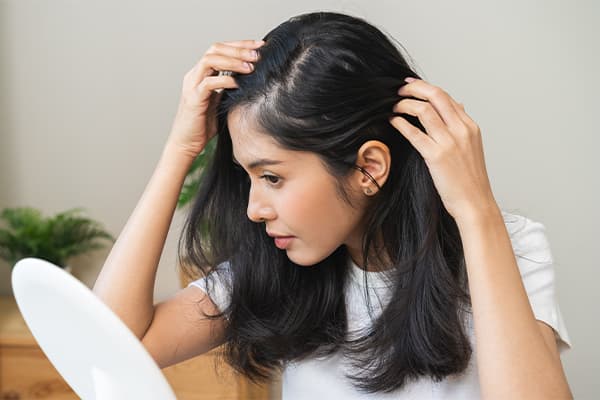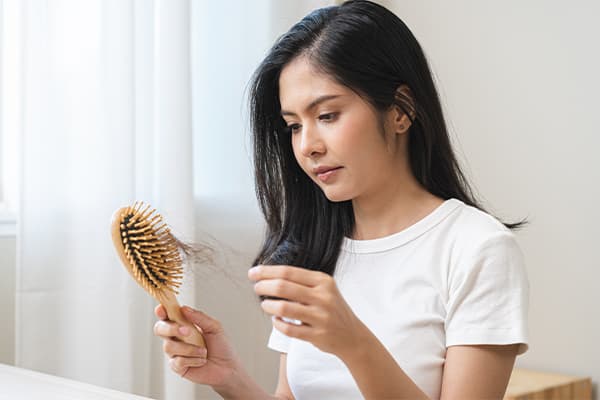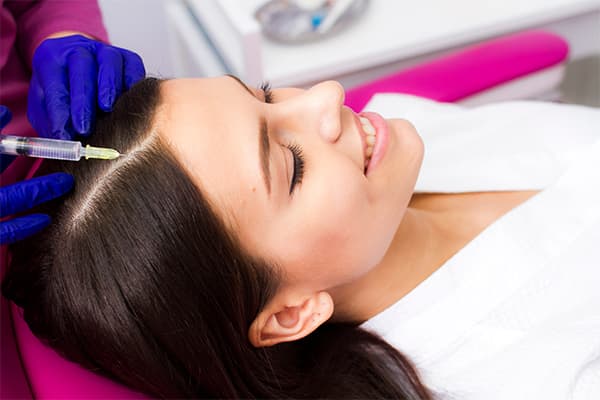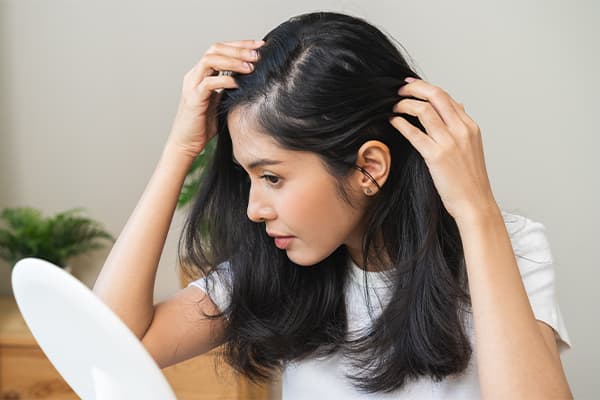
Compare Best Hair Loss Treatments for 2024
Compare the best hair growth products to help you fight your hair loss.

Best Hair Loss Treatments
Meds for 2024
Compare the best hair growth
products to help you fight your hair
loss.
Understanding Topical Hair Loss Treatments
Topical treatments are a popular choice for people dealing with hair loss. Applied to the scalp directly, these treatments aim to stimulate hair growth, reduce thinning, and potentially slow further hair loss. Leading providers offer specialized formulas with prescription-grade ingredients that have been researched and show encouraging results for addressing certain types of hair loss.
These treatments include ingredients designed to enhance blood flow to hair follicles, promoting healthier and stronger hair growth while also reducing inflammation that may contribute to hair loss. Leading providers typically offer personalized treatments that combine prescription-grade ingredients with nutritional supplements to target specific hair loss concerns, scalp conditions, and male or female pattern hair loss. It’s essential to consult a doctor, as some treatments suitable for men may not be appropriate for women, and vice versa.

Achieve Hair Regrowth in Just 3-6 Months with Hims

Topical Solutions for Various Types of Hair Loss
Various types of hair loss benefit from customized treatments that target the root causes and encourage healthy regrowth. Identifying the specific condition you’re experiencing can guide you and your doctor in choosing the most effective topical solution.
Below are the most common hair loss issues men and women experience that may be managed with prescription-strength or over-the-counter treatments:
- Androgenetic alopecia or pattern hair loss
- Alopecia areata (an autoimmune condition)
- Traction alopecia
- Scalp psoriasis
- Telogen effluvium (caused by nutritional deficiencies)
How to Select the Right Hair Loss Treatment for You?
Choosing the right hair loss treatment depends on both the type of hair loss and severity of the condition. With numerous options available, consulting your doctor can help you understand how each treatment works and identify the most suitable choices for your needs.
Topical treatments are directly applied to the scalp to target the area affected by hair loss, while oral treatments are taken in pill form. However, oral medications may carry side effects, such as unwanted hair growth on the face and body or sexual dysfunction. In contrast, topical treatments typically have fewer side effects than oral options.
For those just beginning their hair loss treatment journey or seeking maintenance solutions, medicated shampoos, over-the-counter topical treatments, and nutritional supplements are available to help promote overall hair health and strength, although individual results can vary. In more severe cases, or when OTC options prove ineffective, prescription-strength medications may be necessary.

Factors to Consider in Choosing a Hair Loss Treatment
When selecting a hair loss treatment, keep these factors in mind:
- Severity and Type of Hair Loss: Different treatments work best for specific types and degrees of hair loss.
- Convenience: Opt for a treatment that easily fits into your lifestyle and daily routine.
- Side Effects: Consider potential side effects and weigh them against the benefits of the treatment.
- Cost: Treatment prices vary, so find an option that aligns with your budget.
- Long-Term Commitment: Many hair loss treatments require consistent use to sustain results. Follow usage directions carefully, as overuse can sometimes cause side effects like skin thinning with certain topical products.
- Doctor’s Advice: Consult a healthcare provider to identify the most suitable treatment for your specific condition.
- Research: Review medical studies, paying attention to the sample size and demographics, to confirm that the treatment’s effectiveness is well-supported by evidence.
When to Consult a Doctor
Hair loss can be unsettling, but not all cases need a visit to the doctor. However, you should consider consulting a doctor if you experience:
- Rapid Increase in Hair Loss: A noticeable increase in hair loss may point to an underlying health issue.
- Bald Patches: The development of bald patches could be a sign of conditions like alopecia areata requiring medical intervention.
- Scalp Issues: Ongoing itching, redness, or scaling on the scalp might indicate a skin condition that needs professional care.
- Hair Loss Accompanied by Other Symptoms: If hair loss occurs alongside symptoms like fatigue, muscle weakness, or weight loss, or it could be linked to a systemic health issue.
- OTC treatments not taking effect: When over-the-counter options show no improvement after several months, a doctor can discuss alternative prescription treatments.
- Emotional Distress: If hair loss is becoming the cause of emotional suffering or diminished quality of life, professional support can provide both emotional support and treatment options.
A healthcare professional can help determine the main cause of your hair loss and recommend the most effective treatment plan.
Must Reads
Hair Loss: Recognizing the Warning Signs
Hair loss and thinning is caused by a variety of factors. This includes hormonal and lifestyle changes, underlying health conditions, and genetics.

Understanding the Impacts of Hair Loss & Balding
Hair loss is a very common condition affecting millions of people, it is a natural part of growth and aging. But the psychological, emotional, and social consequences of losing hair should not be invalidated. Hair loss is more than simply a cosmetic issue, it affects people’s general well-being.

Top 12 Ways To Prevent Hair Thinning In 2024
According to the American Academy of Dermatology, it’s normal to lose 50 to100 hair strands per day. Losing more than this could indicate excessive shedding, which may contribute to overall thinning hair.

Read Our Latest News

Hair Botox: What You Need to Know

Hair Loss: All In One Guide

Hair Loss: Recognizing the Warning Signs

